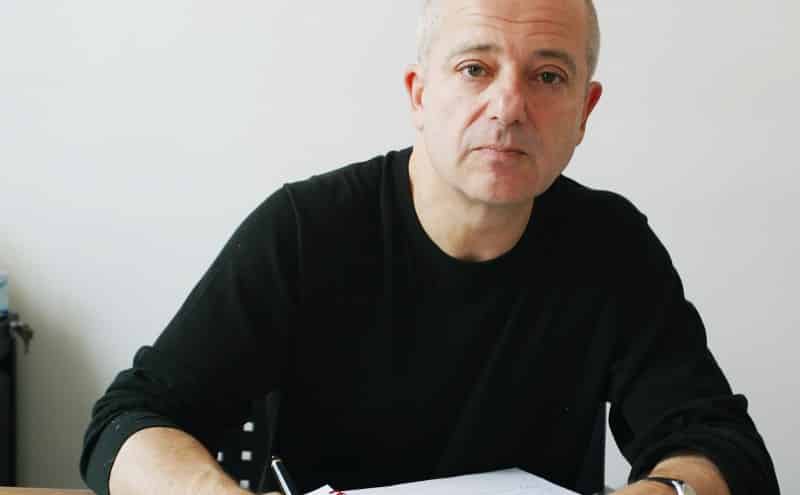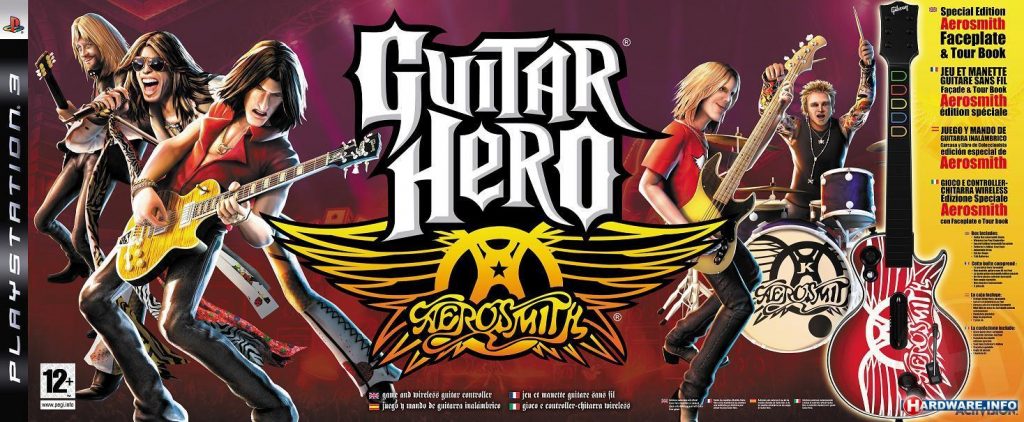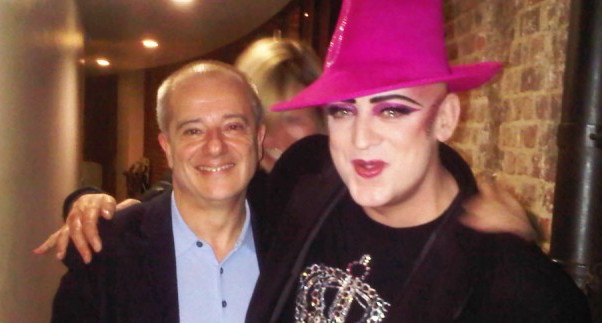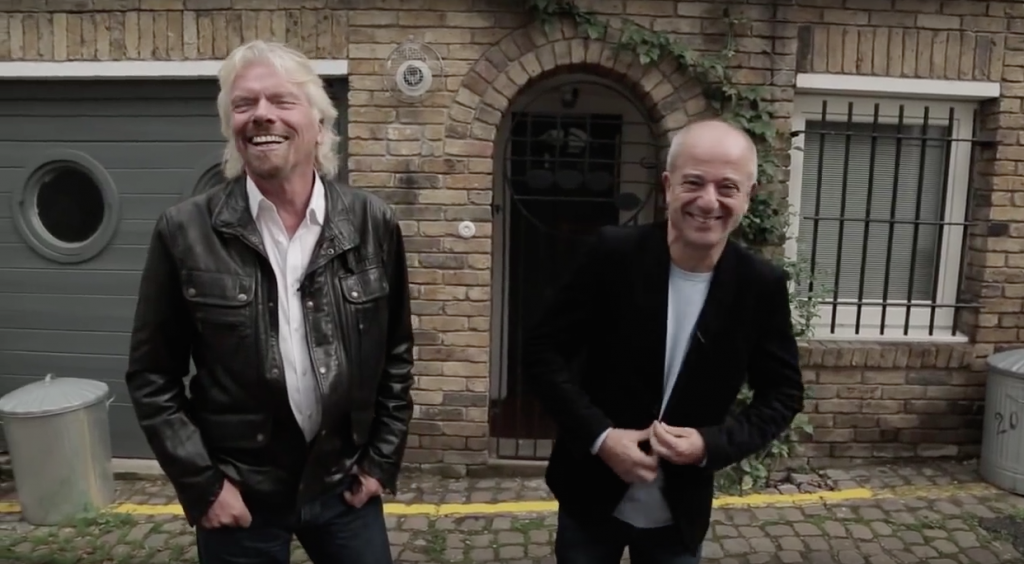Part 2 of our interview with ex head of the Virgin, Chrysalis and Stage Three publishing companies Steve Lewis (Missed Part 1? Head here).
So going back to sync licensing, how have you seen that side of the market change over the years?
I think there are a number of elements. The first is that the social climate is different. It’s not uncool for your music to be used in a commercial if you’re a songwriter or an artist. If an artist or composer says, “I don’t want my music used for those kinds of things.” I say, “You have to go where the audience is, where the market is. This is how you’re going to reach people.” We don’t have the same kind of industry as we did before. There was a time when an artist could become extremely wealthy and not need to have any licensing income because their music was going to be played on all kinds of radio stations around the world, and you had just a few television stations so Top of the Pops was watched weekly by 18 million people, you’ve reached a large audience with one programme.
Now the audience is fragmented. You have to go where the audience is. And one way that you can find the audience is in commercials, in films and stuff like that. I think it’s very important to be there. Go where the market is. You don’t have 18 million people watching one TV programme anymore. It’s fragmented, we have hundreds of stations available. Young people don’t watch television anymore, they watch programmes on mobile screens whether it’s tablets or smartphones. They don’t watch it when it’s being broadcast live, they watch in on catch-up, they find things on YouTube. You’ve got to go where the audience is. So I think that’s a really important thing.
And then, as the industry has seen its income shrink from physical sales, it has been far more anxious to find alternative income streams. So they have been hiring people to run their sync departments and they’ve got good relationships. At Stage Three my licensing department was run by Mary Ann Slim who previously worked for HandMade Films, she knew the movie industry, she was incredibly smart, she was very entrepreneurial and she got us into areas that you never would have got in to in the old days of the business.
What were your techniques for finding those opportunities?
The first thing is buying the music in the first place. We bought the Aerosmith catalogue. Do you remember the video game Guitar Hero? It was huge for a couple of years. At Stage Three we had the first Guitar Hero game that was dedicated to one band. That put such a spike in our turnover, we had a fantastic year. We had other successes in other areas, but that was the largest, single contributing factor. I said to my board, “We’re revising the forecast upwards, the year end is going to be much better than I told you in the budget because of this and I can’t take any credit for it because I didn’t do anything.” What I did was have the foresight to buy the catalogue in the first place at a pretty full price. And I believed that the great copyrights attract great usages. So the first thing is, get great copyrights. You’re not going to make large amounts of money with rubbish. It’s just not going to happen.
Unfortunately not everyone can afford Aerosmith though.
No, but you can find the next Aerosmith. If you’ve got no money at all and your mate is in a band that you think is better than Aerosmith, start a publishing company and work with them. But the other thing that you have to do is pay attention. I used to say to people, “I want you to know every track on every album so when the right opportunity comes up you’ll be able to identify it.” And that is what bigger publishing companies cannot do, they don’t have enough people to listen to that much music. We had a small, focused catalogue and a good ratio of staff to copyrights, staff to songwriters, and we were able to pay attention to detail and think laterally because we had the time. We could work thoroughly and conscientiously on our catalogue and be imaginative with it. And that’s what we do. It’s about having great songs and building relationships with music users.
How did you develop those relationships with the supervisors and the ad agencies?
Well, I hired people with those contacts. I didn’t have all of those contacts, I knew what I needed. As I said I brought Mary Ann Slim into the company who was working at the time at BMG and had previously been in the movie industry and she had a lot of those contacts and she was charming and intelligent and she was able to broaden the base of her contacts.
Would you say artists nowadays are much more savvy about sync?
It’s turned around 180 degrees. Some people still don’t want their music used in commercials, I think they are wrong but there are still some people who will not do that. But they are very, very few and far between these days. And now, very often, the first question I get asked is, “Can you get us an iPod commercial?” Back in those days we had a band called CSS that we did get into an iPhone commercial and I think we had two bands we got iPhone commercials for. Which is pretty good considering we had a tiny little roster. But that was a question they would all ask us. It was seen as a significant way to break a band. Apple didn’t pay a lot of money for the licenses, their attitude was, “Well, we’re giving you promotion.” And so you had this big conflict between promotion and adding value by using your copyright. In the case of CSS, they were a virtually unknown band so there was a promotional element to it.
Had they come to us and said, “We want to use ‘Stuck in the Middle with You’ and you’re going to get good promotion”, I would have told them where to put their promotion. You need my song to enhance your product, whether it’s a movie or a commercial or a TV program and you have to pay for that. There’s always that dichotomy. You’re going to get the music user, the person who wants a license from you, telling you, “We’re going to give you promotion.” You’ve got to know whether that is a legitimate point or whether they need you much more than you need them.
It’s about trying to retain the value that you believe it has as well.
Absolutely. You have to maintain the integrity and the value of your copyrights. There are prejudices that writers have about certain kinds of products and some of them I share. They think it would be embarrassing to be associated with certain things. When I took over at Virgin Music my predecessor had licensed ‘Don’t Stand So Close to Me’, written by Sting, to Right Guard. Sting was not happy.
Someone apparently tried to license Johnny Cash’s ‘Ring of Fire’ for a hemorrhoid cream commercial.
That’s a true story apparently, I’ve heard it as well. So there are things that are totally inappropriate and there are other things where you think, “Well, why on Earth not?” We had ‘Baker Street’ in a huge insurance commercial. Why would you not?
It’s about weighing up how many people will turn their noses up versus the millions of other people who will discover the song.
Exactly. That’s what I mean about going to where the market it.
And a lot of it is putting value back into old catalogue as well as the new stuff. Bringing it to a new audience.
That’s absolutely true. And sometimes it brings value to copyrights that had no value previously. At Stage Three we had a band called The Boy Least Likely To, and they were signed to Simon Fuller’s label and we thought there was going to be a huge promotional push on them, but it never materialized. Simon was obviously preoccupied with other parts of his empire. They wrote really nice songs with really good melodies and they had, I thought, a real charm to their music. Mary Ann found this introduction to one of their songs and one ad agency used it and it suddenly became very popular. The band sold in total I think about 10,000 albums across two records, but made a healthy six figure sum from licensing.
That’s amazing. I think that ties in with what you were saying about independent publishers really knowing their catalogue. That’s something that we try and facilitate as much as possible at Synchtank.
I think that the Synchtank suite of tools gives a huge advantage to anyone that uses it. If you look at the list of clients you can see that a lot of them are very, very successful publishers who were successful before but aren’t content to rest on their laurels. I wish that this kind of service had been available when I was running publishing companies.
It can really help you get your whole catalogue out there to people.
Yeah, as you say, it can fill in the gaps. If you can’t listen to everything it can analyze things by genre, by mood, by BPM, by any number of criteria that you want to feed into it. So it’s not a question of someone sitting there staring at a wall going, “Oh I know, maybe the Gerry Rafferty track would fit”, and scribbling stuff down on a bit of paper. You can systematize things more easily.
Exactly. How did you get involved with Synchtank?
Somebody introduced me to the founders and they asked me if I would like to join the board and I looked at the business plan and the numbers and I not only joined the board but invested my own money in the company. I think it’s a fantastic product. I think that’s the most sincere endorsement someone can give. Give them your cash? It doesn’t get more sincere than that.
Do you have any tips for people wanting to get into sub-publishing?
They should get in touch with Steve Lewis Services which offers very affordable advice on that! Seriously, I’ve always liked to work with independents personally but of course there are advantages and disadvantages. With Stage Three I went territory by territory and found the best independent in each territory, in my opinion, that could work with my catalogue and got the best results for me and my writers. When I was selling Virgin Music I would say to people, “If you sign with me I control all the sub- publishers around the world from here and I can make sure that the guy in Germany does a good job for you.” So it comes down to meeting people, it’s very much a people business. Who do you believe in? Who is going to believe in you? Who is going to work your catalogue the way you would if you were in that territory? Whose judgment can you trust? Who is going to give you the time and attention? It’s all of those things so I found different people in different countries.
With Stage Three I went territory by territory. For example in Spain I used Clippers, I think they are great. It’s now the third generation of the founding family running the company, he’s a very good publisher and I trust him. In France I went with a company called Because which was run by a former colleague of mine from Virgin. They are all individual choices. At Virgin we were sub-published for a long time. But you get to a point when you look at it and realize you’re paying 10% of your income in Germany to the sub-publisher and losing 10 pence to the pound.
We got to a point at Virgin, particularly with the success of Culture Club, where the 10% I was paying away was more than it would have cost me to open an office. So at that point you might want to do it yourself and that’s what I did. I opened offices all around the world in the early 1980s for Virgin Music. I was invested in these writer’s careers, I was making the A&R judgment, I was risking the advances that were being paid to them. And the amount that the sub-publishers were taking off the top was increasing year on year until it got to the point where I was thinking, “I’m paying them far too much money for the job they are doing for me.” It was worth paying 10% of the amount of money we were earning when we went into this agreement but by the time it expires they are going to be making huge amounts of money that they weren’t responsible for generating. They were contributors, but the major contribution was what was made here in the UK signing and developing those careers and making that investment. It was a straightforward cost-benefit analysis.
You sold Stage Three Music to KKR/BMG Music Rights in 2010, can you tell us a little bit about what you’re up to at the moment with Steve Lewis Services? Have you completely ducked out of publishing?
I’m involved with a number of different things. I haven’t actually completely ducked out of publishing. I joined the board of the Canadian independent Nettwerk Music Group. So I’m on the board of the parent company of Nettwerk and I advise them on acquisitions. I also have a small joint venture publishing company. I’m not trying to build another multinational or anything like that, but I do have some songwriters who I’m friends with and whose work I admire enormously and I want to keep working with. So, for example, I publish Chris Difford from Squeeze. I’ve been friends with the guys from Squeeze since 1983 when I signed them to Virgin so I publish Chris and there is a new Squeeze album coming out later this year which I’ve just been listening to and is fantastic.
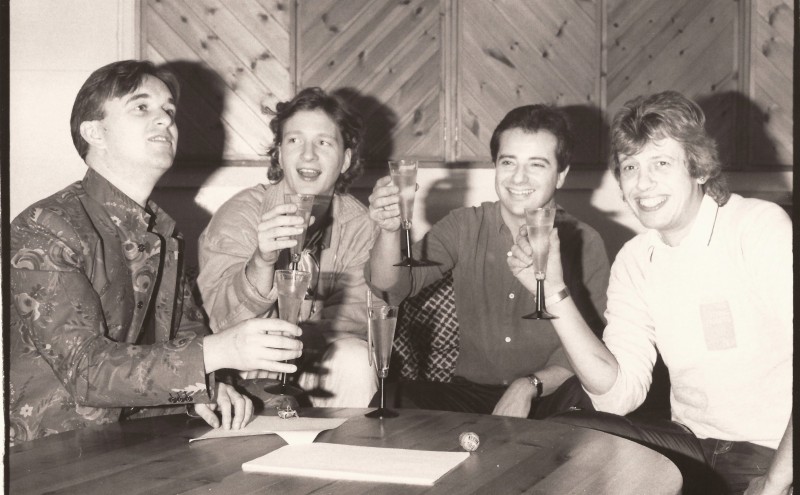
So I still get my kicks from working with songwriters. Like I said, I’ve got a very small roster – Chris, a songwriter called Shelly Poole who used to be in Alisha’s Attic who is an old friend of mine and I think writes lovely songs. She has a band called Red Sky July and they have a new album coming out soon. A songwriter called Andy Hill who wrote, among many others, ‘Think Twice’ for Celine Dion, won the Eurovision contest with Bucks Fizz, two time Ivor Novello Award winner. So I’m not completely out of publishing.
You can’t let go just yet.
No, I love it. As I said at the very beginning, I love hanging out with songwriters, I love the whole process. It’s magic as far as I’m concerned. How someone, out of thin air, can create something that can change a mood, make you happy, make you sad, help you understand the world, or at least it does me.
And with publishing you’re working with the actual writer.
Exactly, I love doing all of that. But as I said I love the whole tech side of the industry. I think the tech side is a really exciting space so I was very happy to join the board of Synchtank. I’m also on the board of a company called MixGenius which is another Canadian company. We have a subsidiary called Landr, left and right, which is now the most successful mastering studio in the world. It’s automated mastering, it’s online, live automated mastering. It’s a disruptive technology which I’m very interested in and we’ve just had a multi million dollar fundraise, Warner Music have come in as investors. We mastered more tracks in the last six months than all the mastering studios in the States combined. So that’s an interesting tech business.
I’m also Chairman of a company called playDEFmusic which makes apps. So far we’ve worked more or less exclusively for Universal, but we’re beginning to work with some other labels and artists. It’s an app that you download on the Apple store for free but need a premium streaming account to hear the music and it gives you a whole new dimension of listening to music. It’s ideal for listening to music using an iPad, for example. It’s like having the biggest and most extravagant box set you’ve ever had. But it’s free. And the reason that the label has commissioned us to make these apps is because they want to get as large a share of the streaming market as they can. So I’m involved in some of those things. And I’m an adviser to The Buddy Holly Educational Foundation which is a lot of fun. We organize songwriting retreats and just generally try to help young people, aspiring songwriters, to get into the industry and to make sure they’re not taken advantage of in business dealings. And I do some work at the Roundhouse which is another organization that works with young people. So I keep busy.
You mentioned your keen interest in tech. What do you think are the biggest game changers at the moment? What predictions do you have for the music industry?
I don’t think I’m going to be able to tell you anything that you won’t see generally shared. I think it’s a generational thing. And I don’t think it’s limited to music by the way. I think there is a generation now, the so-called Millennials, who are not really interested in owning things, they are not learning to drive. When I was a kid all I wanted to do was learn to drive and have my own car. The rise of car sharing Zip Car and those kinds of things, there’s loads. There’s a whole generation who don’t care about owning things and I’m sitting here in a room with thousands and thousands of vinyl records, CDs, box sets.
That’s that shift, it’s all going to streaming, it’s all going towards access rather than ownership. I don’t buy CDs anymore. At one point I was continually building new shelves and trying to take over new rooms in the house to keep my ever-growing collection of music. But now the only things that I really want to buy and own are things that physically very attractive. I buy box sets, I spend large amounts of money on premium products. If I think a record is really going to benefit from a sonic point of view by having the physical product, I’ll buy that. With some records you know that streaming is probably not quite CD quality. I bought a box set of The Small Faces last year. It was a limited edition and was about £200, but it’s beautiful, I love it. It’s the sort of thing you want to lick, you know? I supplement my streaming by occasionally buying physical product.
So you primarily stream?
Primarily I stream. And apps like the playDEF app give you a digital version of the kind of satisfaction you got from buying records where you could take out a lyric book and have photos with it and all those kinds of things. All of that stuff can be done digitally now. I think that’s the biggest change and what is fantastic about it is that when I was a kid you would buy a record and you couldn’t afford to make mistakes. If you bought a record you didn’t like as much as you thought you were going to like it, you still listened to it because you didn’t have anything else to listen to. If you bought a single you listened to the B-side because you’d paid for it and that was your choice of music. And now you can hear every piece of recorded music that has ever been made at the click of a mouse. It’s fantastic. That’s got to be a benefit to people. I’m not one of those people saying, “I wish it was like the old days.” I don’t wish it was like the old days. You can’t stop progress, you’ve got to embrace technology and you’ve got to use it. It can benefit the songwriters, the artists, and the rights owners, in my opinion.
The new elements of discovery are really exciting for the music business.
I’m still a little bit old fashioned like that. I’m not interested in what Sean Parker is listening to but I realize that an artist like Lorde, for example, would not have been discovered had he not put her music on his playlist. So there is an importance to those kinds of people. I still go out and buy physical magazines which I like to sit down and read and I will read the reviews and I’ll find the albums I’m interested in on Spotify.
You’ve obviously had such an amazing career. What are some highlights that really spring to mind for you?
There’s too many. The number of times I have found myself turning to whoever I am with and saying, “You couldn’t make this up could you?” It’s just been that kind of a life, I’ve been incredible lucky. I’ve seen the world, I’ve met and become friends with some great artists, and I’ve had some great experiences. If I had to choose one that is emblematic of what a career in the music industry could be, I guess I would say Culture Club. I remember going to see Culture Club in a basement rehearsal studio, John Henry at Kings Cross, in about 1980 and they played and we went back to the office and signed them. In almost the blink of an eye I was standing at the back of Wembley Arena and this band had become the biggest band in the world. Boy George was more recognizable than Michael Jackson, they were that big. It was amazing to be intimately involved in that, which I was – that was one of my projects. I was very, very involved and became very good friends with them. In fact I saw George recently. That was just fantastic to see these guys going from total unknowns to international superstars.
I remember once, I was living in North London at the time, and they did Jim’ll Fix It at a school. And of course we had no idea anything untoward might be going on and now I wonder what did go on. But we had to be there very early in the morning, we got there before the kids came in for assembly, and the headmaster had made them listen to classical music at the assembly and a couple of the kids had written to Jimmy Savile and said, “Can you fix it for us to get Culture Club to play in our school assembly rather than all this boring classical music the headmaster makes us listen to?” They hadn’t had any reply or anything but the teachers identified the kids to the production team and they were sitting in the audience and we were backstage and there was a curtain in front of the band.
The headmaster said whatever the kids names were, “Rosy and Mary I understand you’ve written in to the BBC complaining about the music that I play at assemblies on Monday mornings. We’ve got a change for you.” Now at this point Culture Club were huge, they’d just had ‘Do You Really Want to Hurt Me’ out. They had just had a number one record. And the headmaster said this and these kids were just looking at each other. We could see them on the monitor because there was a close-up of these kids who’d written in. And then the curtain went up and Culture Club went in to ‘Do You Really Want to Hurt Me’. It was just one of the most magical moments. You would not believe it. It was a junior school in Finchley and they’ve got Culture Club playing. Those kids probably still talk about that to this day, thirty years later. And the funny thing is, the band even then, even though they had this record that was in the charts and they had been on Top of the Pops, I took them out to breakfast after that. We went into this little café just around the corner and just had breakfast and nobody bothered us. People were just looking like, “Who is that strange guy?” You know.
Later it became crazy. George used to come and hide in my office because I had an office with no windows. The ground floor of Virgin was besieged by girls pressing their noses up against the window trying to see if Culture Club were in there. And when they came in they saw them arrive so there way hysteria and George would come and hide in my office. Again it was those kinds of things. I remember George coming in to me one day and saying, “I’ve just written the next single. Do you want to hear it? It’s a country song.” I said, “Really?” They were not thought of as a country band. And he said, “Yeah, it goes like this “Karma karma karma karma…” The way he sang it unaccompanied, the band hadn’t even heard it at that point, it did sound a little bit country. But by the time Roy and John and Mikey had arranged it, it sounded like the record that you know that went on to be such a big hit. It was moments like that that I remember that I treasure because they were really special.
We’d like to say a huge thanks to Steve for such a fantastic interview! You can check out Steve’s website here: http://stevelewisservices.com
